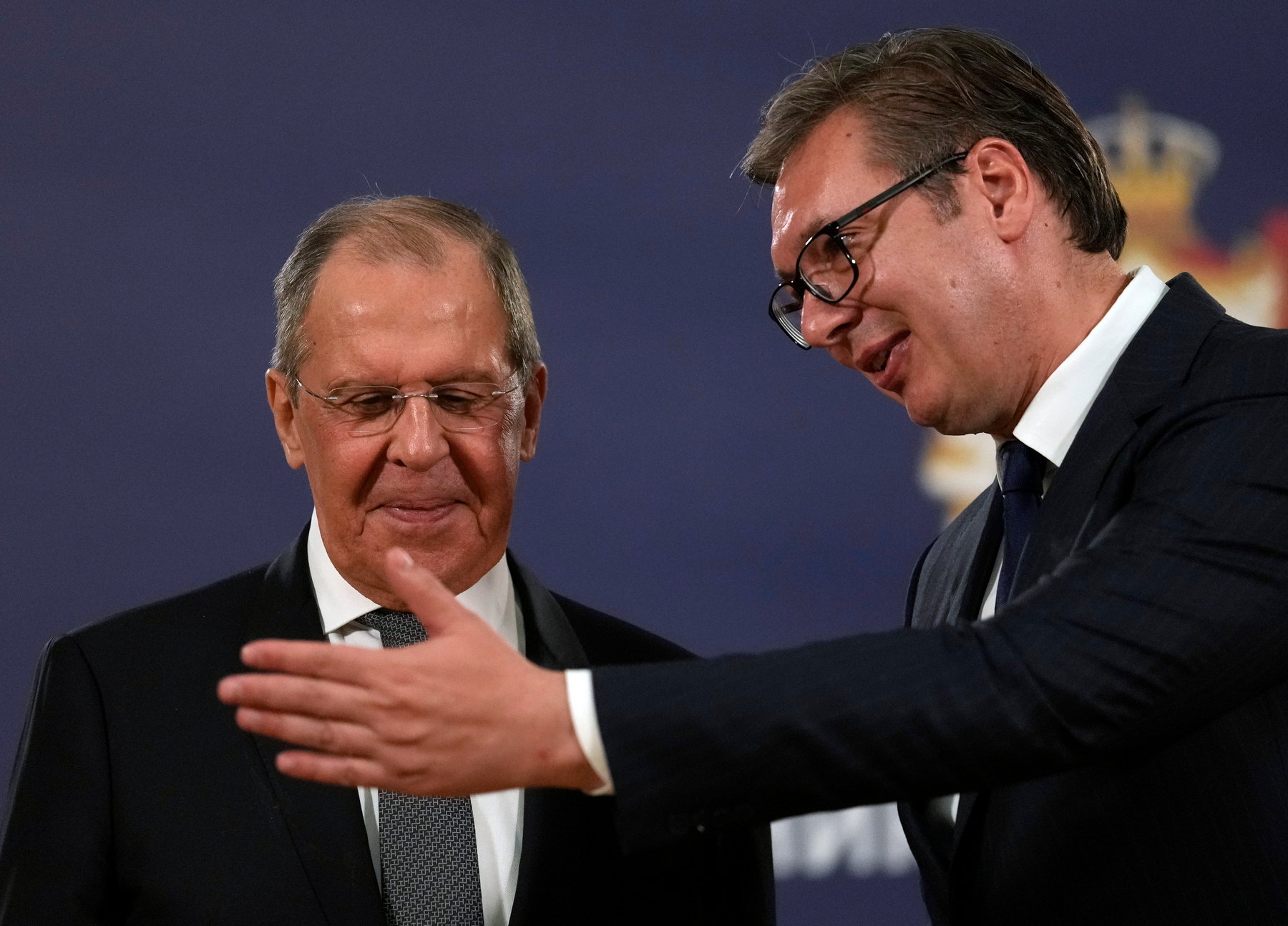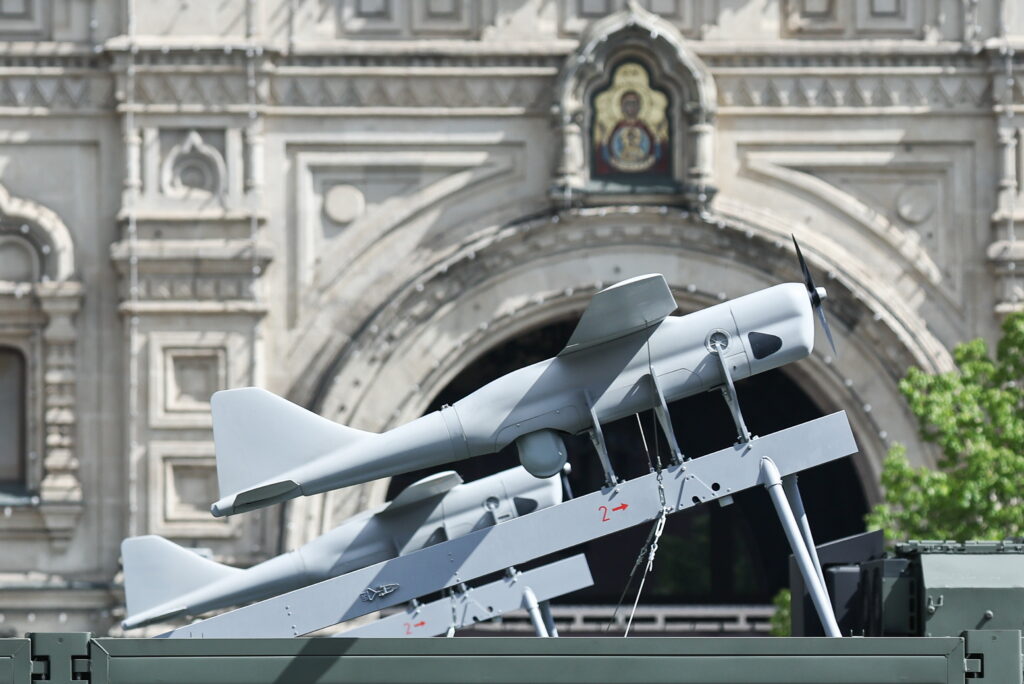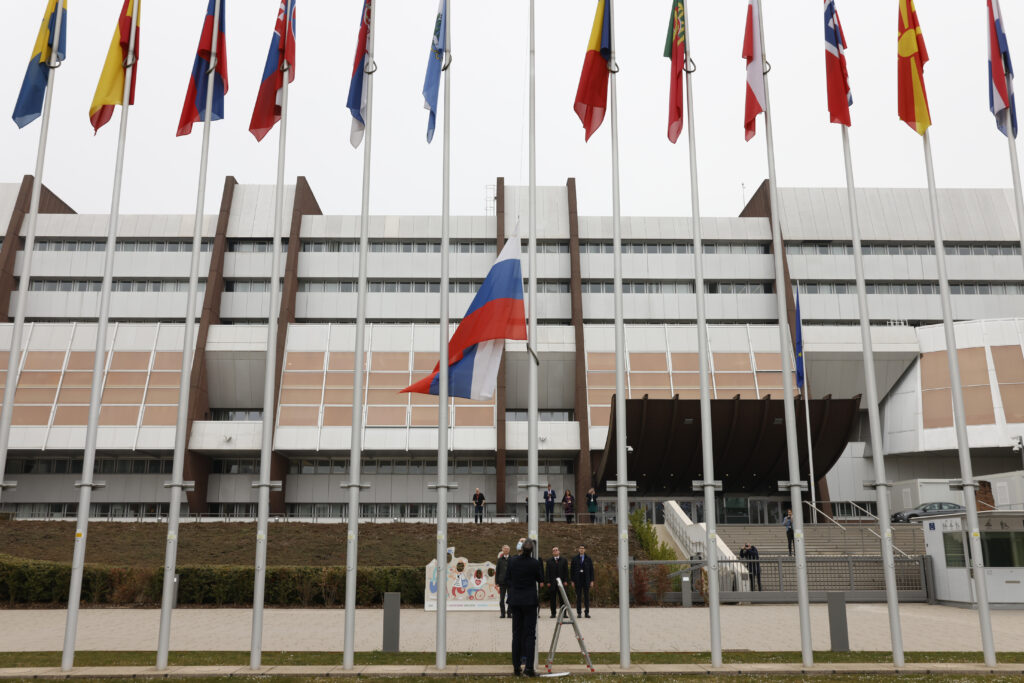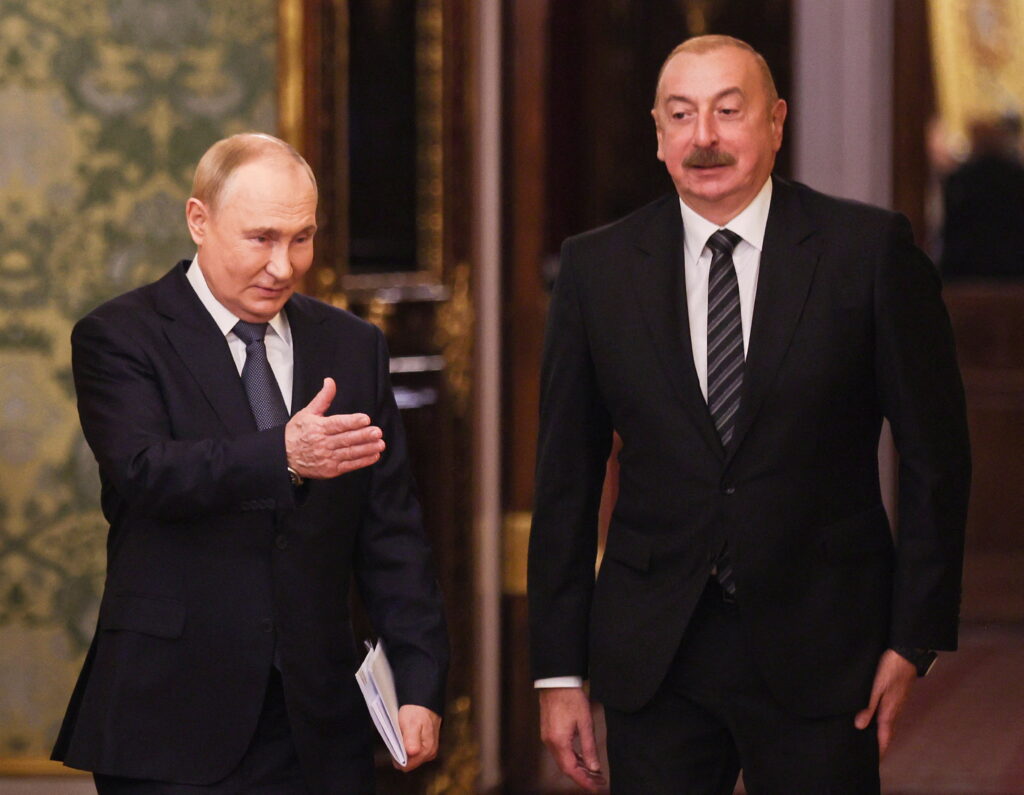Amid heated disputes among the Serbian political elite about sanctions against Russia over the war in Ukraine, Belgrade agreed with the Kremlin in late May to maintain a favourable gas price for the next three years. By extending its gas contract with Serbia for a relatively short period, Moscow is trying to keep Belgrade on a short leash. It is important for the Kremlin to maintain a strategic partnership with the country, which remains a springboard for Russian influence in the Balkans. Meanwhile, as the war drags on, the likelihood of Belgrade joining the Western embargo increases. At the same time, there will be more and more obstacles to the development of Russian-Serbian relations. The disruption of the visit of Foreign Minister Sergei Lavrov to Belgrade (June 6−7) due to the decision of Montenegro, Bulgaria and North Macedonia to close the sky only confirmed the limitations of the Kremlin’s tools in the Balkans in wartime.
Amid the protracted war in Eastern Europe, the gas issue has become one of the key topics in Russian-Serbian relations, given Belgrade’s near 100% dependence on Russian commodities and growing international pressure on the Serbian leadership to impose sanctions against Moscow. Recent agreements between President Vladimir Putin and President Aleksandar Vučić on a new three-year agreement with Gazprom are less favourable for Belgrade than the previous agreement. Serbia will now pay about $ 400 per 1,000 cubic metres of gas, $ 130 more than in the previous 10 years. Although the Serbian authorities call it the best price in Europe, it is no secret that Moscow has partners that get gas on better terms.
For example, Belarus pays $ 128.50 per 1,000 cubic metres. According to Putin, a very generous offer was made last year to Hungary, which buys gas at one fifth the market price in Europe. Although the exact price is unknown, Hungarian Prime Minister Viktor Orban managed to sign a lucrative deal until 2036. Whether Serbia as an ‘ally’ should expect new gas bonuses from the Kremlin after the three-year agreement expires, it is too early to say — especially since politics remains one of the main pricing factors in this area, and the war in Ukraine has added negativity and uncertainty to Moscow’s relations with its only possible ally west of the front line.
Neutrality and sanctions
Experts find it obvious that as long as the model of strategic partnership works and Belgrade does not join Western sanctions, the Serbs can count on a relatively favourable gas price. However, as the war drags on, factors contributing to Serbia’s detachment from Russia will intensify.
According to the Kremlin’s statement following Putin and Vučić’s telephone conversation on 29 May, the parties confirmed their commitment to ‘continue strengthening their strategic partnership’. For Russia, what matters in this context is primarily Serbia’s military neutrality and Belgrade’s non-adherence to Western sanctions.
As for neutrality, in his inaugural speech on 31 May Vučić reiterated his lack of plans to join any military alliance. This position is unlikely to change in the coming years. The issue of sanctions is more complex. Despite increasing pressure from the US and EU, Serbia remains the only European country that has not joined the anti-Russian measures. However, there is no certainty that this will not change. In any case, Vučić has stated that he will oppose the anti-Russian sanctions until ‘Serbia is forced to do otherwise‘. The Serbian leader put these words in the context of the EU integration process, which remains Belgrade’s strategic goal.
The US and EU expected Belgrade to act more decisively with regard to Russia after the April elections, which gave Vučić an extension of his presidential mandate and control over the parliament. So far, no significant distancing from the Kremlin has been observed. At the same time, Vucic is in no hurry to form a new government. Serbia is among the countries that are unable to influence the resolution of tensions between Russia and its main opponents, while at the same time it is dependent on cooperation between both the East and the West. As a candidate for EU membership, Serbia faces continuing pressure to adjust its foreign policy to a common European one, while at the same time it has to deal with the ‘besieged fortress’ in the East which provides it with diplomatic support on the Kosovo issue and sets its gas prices. There is simply no realistic alternative to Gazprom supplies in the region at the moment.
In search of new suppliers
The Serbian oil and gas sector has been in pro-Russian hands for years. At the beginning of 2021, Gazprom started supplying commodities via TurkStream. To do so, an additional 403-kilometre-long pipeline had to be built in Serbia. This was handled by the joint venture Gaztrans, in which Gazprom has a 51% stake, and the Serbian state-owned company Srbijagas holds the other 49%. According to some European experts, the construction of the new pipeline has further strengthened the monopoly position of these companies in the Serbian market for at least the next 20 years. Srbijagas is Gazprom’s main partner in Serbia. Together they own the Banatski Dvor storage facility (Gazprom has 51%; Srbijagas, 49%), which is considered one of the largest gas storage facilities in South-eastern Europe.
At the same time, Serbia is trying to reduce its dependence on Russian supplies, primarily through the construction of a pipeline linking it to Bulgaria, due to be completed next year, which would enable it to receive Azerbaijani gas. After Vučić reached a new three-year agreement with Putin, Serbian Energy Minister Zorana Mihajlović headed to Azerbaijan. After talks with President Ilham Aliyev, Mihajlović said that greater cooperation between the two countries, especially through the diversification of routes and suppliers of natural gas, could make a significant contribution to Serbia’s energy security.
The main source of Azerbaijani gas supplies to Europe will be the Shah Deniz gas field in the Caspian Sea. The field is being developed by a consortium of several major companies, including British Petroleum (29.99%) and Lukoil (19.99%). Gas is supplied to Europe via the South Caucasus Gas Pipeline, which runs from Baku to Tbilisi to Erzurum, and the Trans-Anatolian Pipeline (TANAP), and then via the Trans Adriatic Pipeline (TAP).
Serbia changes its tone
Belgrade has for years tolerated the Kremlin’s foreign policy ambitions and has not hindered the expansion of its influence in the Balkans, including since the 2014 annexation of Crimea. Although the Serbian authorities have not recognised Crimea as Russian, they have continued to expand military ties and security cooperation with Russia. Joint exercises have been held twice a year, and Belgrade was willing to accept Russian military vehicles as a gift. However, further rapprochement is now in question.
After the invasion of Ukraine by Russian troops in February 2022 and accusations that Moscow is responsible for mass war crimes, Serbian authorities began to change their tone. For example, Serbia has already voted three times in favour of anti-Russian resolutions at the UN, including suspending Russia’s membership in the Human Rights Council. Ninety-three countries were in favour of the decision, 24 were against it and 58 abstained. Some observers were surprised that Serbia did not take the opportunity to abstain, but Belgrade itself seems to have concluded that Western partners would perceive it as a sign of support for the aggressor.
From the first days of the Russian invasion, Vučić managed to balance between Serbia’s main partners, presenting his steps in public as involuntary. Thus, he would send messages to the relevant parties, justifying his decisions. Vučić told the Russian audience that he was acting under pressure from Western countries, and informed Western countries that he supported the territorial integrity of Ukraine and considered the Russian operation a mistake, but he had to act with the interests of his own country in mind. As he recalled, Serbia was bombed by NATO countries in 1999. Moreover, Vučić pointed out that putting such a small country like Serbia on the same sanctions list as a giant like Russia would be counterproductive. Due to these manoeuvres, the question of sanctions remains open.
Meanwhile, the anti-Russian voices among the Serbian political elite are getting louder and louder. For example, Dragan Šormaz, one of the leaders of the pro-presidential Serbian Progressive Party, recently advocated sanctions: ‘Serbia should be part of a modern, free, democratic, technologically advanced Euro-Atlantic world. Everything else is a lie and a deceit. Serbia made many mistakes in the 1990s, and today it has no right to do so. We are choosing between being part of Europe or Asian despotism with its omnipresent backwardness and poverty’, Šormaz said.
And the above-mentioned Mihajlović, also a member of the ruling party’s leadership, went even further and called Russia a ‘threat to a free Europe‘. ‘It is striking that the idea of a free and united Europe is now threatened by the country that made the greatest sacrifice in the fight against fascism’, Mihajlović said on the occasion of Victory Day. It is hard to imagine a harsher statement from a high-ranking official of a country that is often referred to in Russia as brotherly, let alone on 9 May.
Does Serbia risk isolation?
Frequent calls for Belgrade to align its policies with the EU do not directly entail the threat of blocking Serbia’s European path, but the war in Ukraine, Serbia’s status as an EU candidate country and the issue of sanctions are usually mentioned in the same breath. In this sense, it cannot be ruled out that Serbia’s EU integration prospects will sooner or later be called into question if it refuses to distance itself from Moscow.
It is often said that Vučić wants to have his cake and eat it too. In recent months critics have increasingly reminded him that the Russian cake is getting stale. The most convenient option for Belgrade is an early end to the conflict and stabilisation of Russia-West relations, but this is the least likely scenario. If the conflict drags on, Belgrade will have to rethink its relations with Moscow. The Serbian authorities are not likely to risk their ties with their main financial donors and security guarantors in the Balkans — all the more so because Serbian business (with the exception of the energy sector) has long been oriented towards Europe. Seventy per cent of direct investments in Serbia come from the European Union.
This reorientation will not look like severing ties, but the essence of those relations, which are very important to the Kremlin, will gradually be depleted. This is not so much due to pressure from the US and the EU but rather to the new realities that Russia is creating while disregarding those it calls historical allies. The continuation of the war is leading to Russia’s protracted isolation, colossal damage to its economy and a weakening of its global influence, which automatically makes Russia an uncomfortable and difficult partner.
Weakened by unprecedented sanctions, Russia will not be able to afford large-scale projects in the Balkans for a long time to come. In Serbia’s foreign economic relations before the war, Russia ranked fourth (after Germany, Italy and China) with $ 2.5 billion in mutual trade, slightly ahead of countries such as Hungary and Romania. Russian investments in Serbia are estimated at $ 3 billion. In the next few years, these figures will drop.
Throughout the world, there are hardly any opponents of the policy of sanctions and containment against Russia left, and certainly not among Belgrade’s key economic and political partners. If Serbia does not change its relations with Moscow, it simply risks being isolated itself, as has happened to Serbia in recent history.










